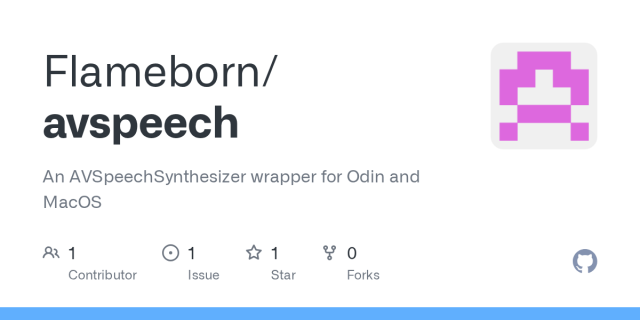#golang is undoubtedly my favorite programming language. It's fast, elegant, while it has a KISS approach with a very minimalistic syntax and lots of other things that should be the standard in 2025. As a scripting language, when less power is enough, Lua is definitely great for when all you want to do is design, rather than worry about low level things.
Then #Odin came along, still very young and very basic when it comes to available libraries and tools, but the language keeps many things that are great about Go, adds manual memory management so it's great as a systems language, as well as makes C interop more seamless.
Without these languages existing today, coding would be very bleak indeed, having to put up with a lot of things that should not be a requirement if you want to just write code. Just to mention a few: bloated build systems, declarations, header files, needlessly complex syntax, spending hours on writing wrappers and documentation, and setting up cross-compiler toolchains.
Why is this important? Because when you code, your brain is in problem solving mode. You focus on the design, the mechanics. While you do that, other parts of your brain have to deal with creating build XMLs, focusing on the syntax (how best would it be to implement this based on what you have). If you use a language which is not constrained, the cognitive load increases and you could spend more time working on something even if it's not obvious why.
Now the question is, am I a better Go programmer because of Odin? My answer is yes. I get everything I wanted from C in a very simple and elegant way. For constrained, very low level things where memory management is crucial, Odin works perfectly. If this is less important, Go is great. I don't need anything else except scripting, for even faster design, e.g. when writing a game specifically. That's my current stance in 2025, but I'm very curious to see if this will ever change. Because I think I found the best approach that works for me.

